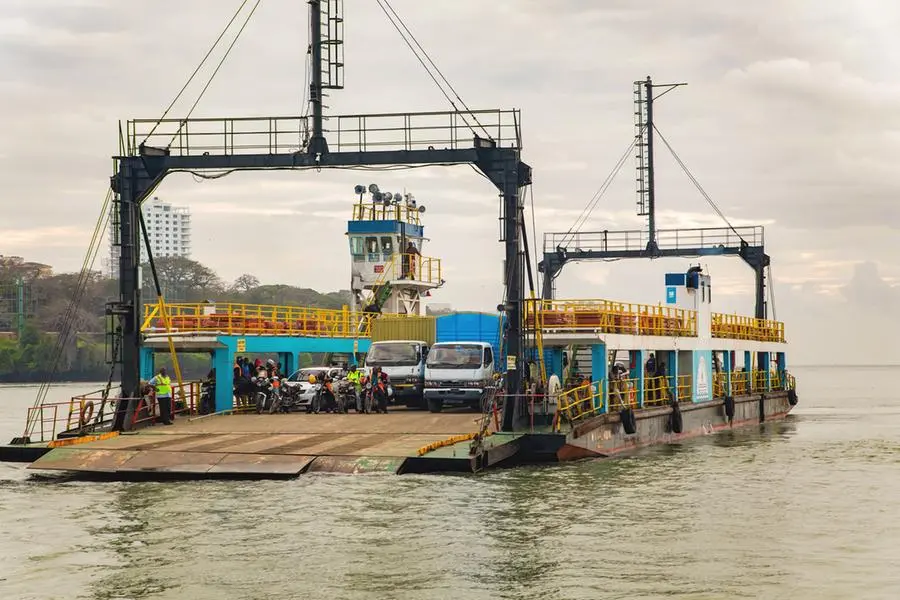PHOTO
The world's largest container shipping companies, Mediterranean Shipping Company (MSC) and Denmark's Maersk, have announced surcharges due to congestion at the port of Mombasa and the Red Sea crisis blamed on attacks on ships by Yemeni Houthi militants.
In the surcharges set to take effect on January 13, the two shipping majors say they have been necessitated by the need to meet the costs of the delays caused by the congestion, and the long distance used to ferry cargo to different destinations.
MSC is proposing a congestion surcharge of $500 for both 20 and 40 feet containers, while Maersk is proposing to charge up to $1,700.
In its website, MSC announced the new charge for Middle East and Indian Subcontinent to Mombasa.“Due to port congestion at Mombasa, Kenya, generating difficult conditions to operate and increased costs, MSC will apply a Congestion Surcharge (CGS) for cargo from the Middle East and Indian Subcontinent (India, Pakistan, Sri Lanka, Bangladesh) to Mombasa, Kenya. As from 13 January 2025 (gate in date) until further notice, the CGS will be charged at $500 for both 20 and 40 feet containers,” it said in a statement.
But shippers and traders in Mombasa have opposed the charges and urged the Kenya Maritime Authority (KMA) not to approve them.
Container Freight Stations Association of Kenya CEO Daniel Nzeki said they would ensure the charges are not implemented.“I am at the port, the situation is not good because of congestion,” Mr Nzeki said. “Apart from charges for imports, exports are also charged demurrage for staying long at the port without being loaded onto the vessels. We are asking Kenya Ports Authority to rework its strategy to end congestion.”Read: Why shipping costs are going to stay high in 2025The Shippers Council of Eastern Africa has also protested. “SCEA opposes the intended increase the surcharge and calls on MSC to rescind the decision, which will hurt shippers for no fault of theirs. KPA has to come out clear and address port congestion,” SCEA chief executive Agayo Ogambi said.
MSC is the second-largest shipping line in the world, with 186 vessels delivering 152,687 containers at the port of Mombasa last year, accounting for 18.9 percent of Mombasa throughput.
Maersk delivered 213,066 containers last year, 28.2 percent of the port throughput. Maersk, in its statement, said it would introduce a contingency surcharge due to the ongoing situation in the Red Sea,which continues to cause industry-wide disruptions, including delays and bottlenecking at ports.“We are also experiencing industry-wide equipment and capacity shortages, as well as additional direct and indirect costs. To continue meeting our customers’ needs, some surcharges will increase temporarily,” the statement to customers read.
Depending on the route, the company will charge between $1,200 for dry cargo and $1,700 for reefers.
Last month, the Mombasa and Dar es Salam ports registered an influx of ships, attributed to longer routes and end-year cargo deliveries.
The two ports have recorded the highest number of ships waiting at convenience, with Mombasa recording 21 waiters,compared with 38 ships in Dar es Salaam.
The influx has resulted in Kenya Ports Authority (KPA) cancelling scheduled leave days for all staff working at operation and cargo handling departments in the Port of Mombasa.
Read: Cruise ships threaten to drop MombasaKPA is also calling for logistics stakeholders to increase their efficiencies to assist in evacuation of cargo. Managing director Capt William Ruto said he is also engaging partner government agencies to enhance coordination of thedocumentation processes and quick evacuation of cargo.
Capt Ruto said KPA is synchronising its operations with Kenya Railways to have seven to nine cargo trains running daily to complement other logistics providers to deliver more cargo to the hinterland.“We are in talks with our stakeholders, including Kenya International Freight and Warehousing Association, Kenya Transporters Association and Kenya Railways to ensure fluidity in evacuation of cargo along the Northern Corridor," the KPA boss said."The authority had to establish various measures, including rearranging work operations to ensure full optimisation of staff strength saying they will work round the clock to address the influx and ensure seamless handling of vessels and evacuation of cargo from the Port to respective destinations."On Thursday, he said there were 26,309 container units but 1,493 twenty-foot equivalent units (teus) had been evacuated and delivered by road and another 1,190 teus (equivalent to 11 trains) through the railway.
© Copyright 2022 Nation Media Group. All Rights Reserved. Provided by SyndiGate Media Inc. (Syndigate.info).




















